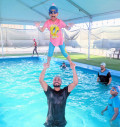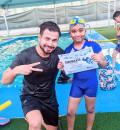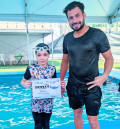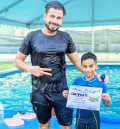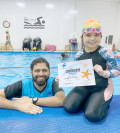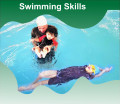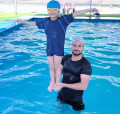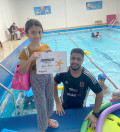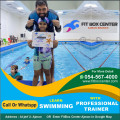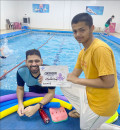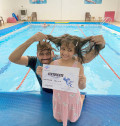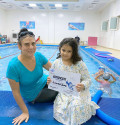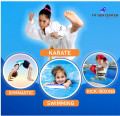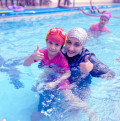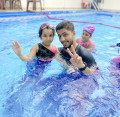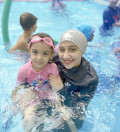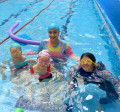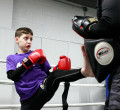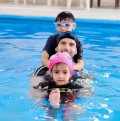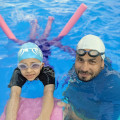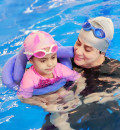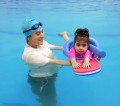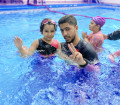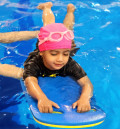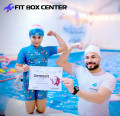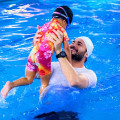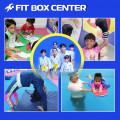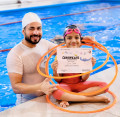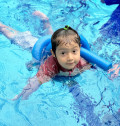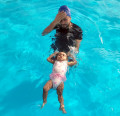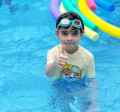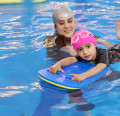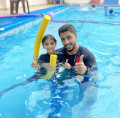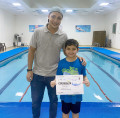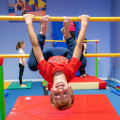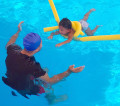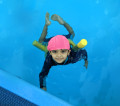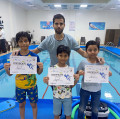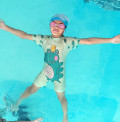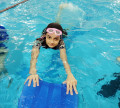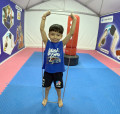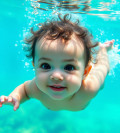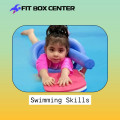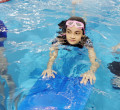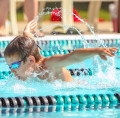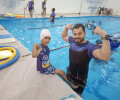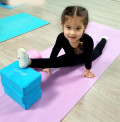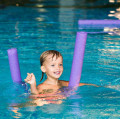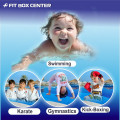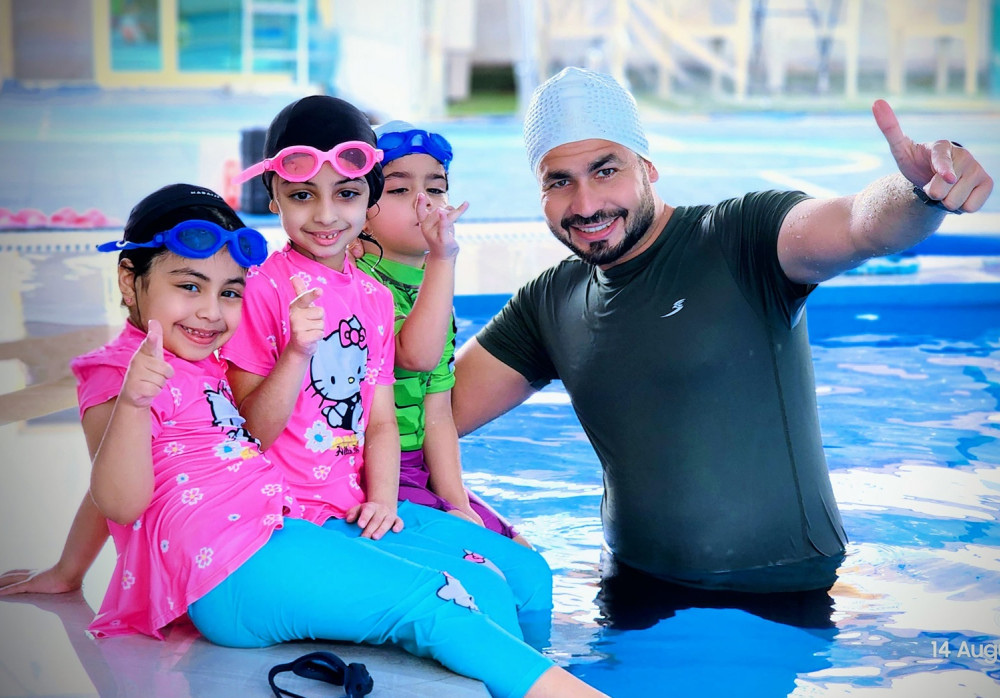
Swimming for Kids Providing Fitness Looking Smart, and Staying Fresh
2024-08-14 - swimmingSwimming is more than just a fun activity for kids; it's a gateway to a healthier, smarter, and fresher lifestyle. As parents, we always look for ways to keep our children active, engaged, and healthy. Swimming offers all these benefits in one package, making it an ideal choice for kids of all ages. Let’s dive into why swimming should be a top choice for your child’s fitness routine.
Cardiovascular Health
Swimming is an excellent cardiovascular workout that strengthens the heart and improves lung capacity. Unlike many other sports, swimming is low-impact but still provides an intense workout that gets the blood pumping.
Strengthening the heart: Swimming engages the entire body, encouraging the heart to work efficiently to circulate blood. This strengthens the heart muscle, promoting long-term cardiovascular health.
Enhancing lung capacity: The rhythmic breathing involved in swimming helps expand lung capacity, making the lungs more efficient in oxygen exchange. This is particularly beneficial for children as they grow and their bodies demand more oxygen.
Muscle Development
Swimming helps kids build strength without the risk of injury that comes with high-impact sports. It’s a full-body workout that tones and strengthens multiple muscle groups simultaneously.
Building strength without impact: The water provides resistance that helps build muscle strength without putting stress on joints. This makes swimming a safe option for growing children.
Toning different muscle groups: From the legs to the core, to the arms, swimming engages various muscle groups. This balanced muscle engagement helps tone the body, contributing to a lean, athletic appearance.
Coordination and Balance
Swimming requires coordination between different parts of the body, improving overall motor skills and balance in children.
Developing motor skills: The complex movements involved in swimming strokes help kids develop fine motor skills. This can translate to better coordination in other physical activities and daily tasks.
Improving posture: The buoyancy of water allows for a full range of motion, which can improve posture. This is especially important for kids who spend a lot of time sitting in classrooms or in front of screens.
Flexibility
The fluid movements of swimming stretch muscles, improving flexibility and reducing the risk of injuries.
Stretching muscles effectively: Swimming involves extending limbs in various directions, which stretches muscles and increases flexibility. This is particularly beneficial for young athletes who need to stay limber.
Preventing injuries through flexibility: Flexible muscles are less prone to injuries. By regularly engaging in swimming, kids can maintain a level of flexibility that protects them from strains and sprains.
Mental and Emotional Benefits of Swimming
Boosting Confidence
Swimming can do wonders for a child’s self-esteem. Learning to swim and achieving milestones in the pool can significantly boost a child's confidence.
Overcoming fear of water: Many children start with a fear of water, but as they learn to swim, they overcome this fear, building confidence. This newfound confidence often extends beyond the pool into other areas of life.
Achieving swimming milestones: Each new skill learned in swimming is a milestone. Whether it’s floating independently or mastering a new stroke, these achievements help build a child’s self-confidence.
Reducing Stress
The calming effect of water and the rhythmic nature of swimming can help reduce stress in kids, making it a great activity for both physical and mental health.
The calming effect of water: Water has a naturally soothing effect on the mind and body. Swimming in water helps kids relax, reducing anxiety and stress levels.
Swimming as a form of meditation: The repetitive motions and focused breathing in swimming can serve as a form of meditation, helping kids clear their minds and focus on the present moment.
Social Interaction
Swimming classes and group activities provide an excellent opportunity for kids to make friends and develop social skills.
Making friends through swimming classes: Group swimming lessons are a great way for kids to interact with peers. They learn to cooperate, share, and encourage one another, fostering strong friendships.
Teamwork and cooperation in group activities: Many swimming activities involve teamwork, whether it’s relay races or synchronized swimming. These activities teach kids the importance of working together and supporting their teammates.
How Swimming Helps Kids Look Smart and Fresh
Promoting Healthy Skin
Swimming in clean, chlorinated water can actually benefit the skin, leaving it looking fresh and healthy.
Hydrating the skin: While too much exposure to chlorine can dry out the skin, swimming in moderation helps keep the skin hydrated. The water’s moisture can help maintain skin elasticity.
Improving circulation: The physical activity involved in swimming improves circulation, which can give the skin a healthy, vibrant glow.
Enhancing Physical Appearance
Swimming helps kids maintain a healthy weight and tones their bodies, contributing to a smart and athletic appearance.
Maintaining a healthy weight: Swimming burns a significant amount of calories, making it an effective way for kids to maintain a healthy weight. This can also prevent childhood obesity, a growing concern in today’s society.
Toning the body for a lean look: The full-body workout that swimming provides helps tone muscles and create a lean, fit physique, giving kids a smart and athletic appearance.
Boosting Mental Clarity
Swimming not only improves physical health but also enhances mental clarity, helping kids stay sharp and focused.
Enhancing focus and concentration: The concentration required to master swimming techniques translates into better focus in school and other activities.
Improving sleep quality: Regular physical activity like swimming helps regulate sleep patterns, ensuring that kids get a good night’s sleep. Well-rested kids are more alert and ready to take on the day.
The Best Age for Kids to Start Swimming
Early Introduction (6 months to 4 years)
Introducing kids to water early on can have numerous benefits, from developing basic skills to fostering a lifelong love for swimming.
.






















































